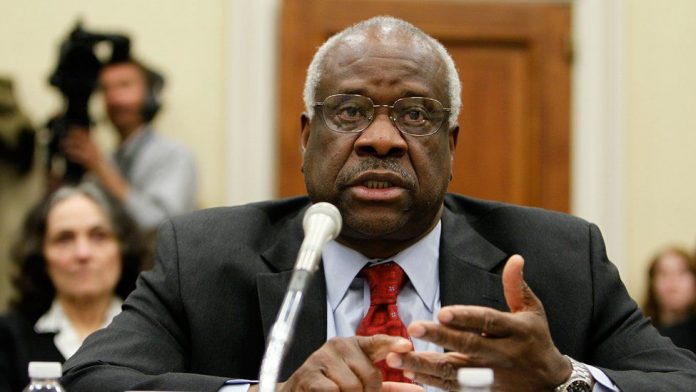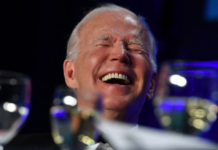Big Tech has been sitting in the spotlight since social media companies such as Facebook and Twitter permanently banned former President Donald Trump from their platforms. It raised questions as to how much these companies can sit behind Section 230, which gives digital platforms full immunity for removal of third-party content. But how far can Big Tech push before violating the First Amendment?
Supreme Court Justice Clarence Thomas recently outlined his own argument as to the procedure and rules Big Tech can follow in allowing everyone to use their services, which would immediately affect their ability to ban or censor users. It would protect legal First Amendment speech for all social media users. This would bring up the issues of tech censorship on digital platforms, which Justice Thomas said we have no choice but to address.
“Today’s digital platforms provide avenues for historically unprecedented amounts of speech, including speech by governmental actors. Also unprecedented, however, is the concentrated control of so much speech in the hands of a few private parties,” Justice Thomas said.
He went on to suggest that so many of the issues with social media censorship are in regards to the fact that Big Tech is owned by private companies. In order to tightly restrict a company’s ability to deny service, tech platforms would have to be considered common carriers or places of public accommodation. He suggested that these regulations are historically recognized “when a business, by circumstance and by its nature, rises from private to be of public concern” and that Twitter and other digital platforms bear resemblance to that definition.
Treating Big Tech as a public accommodation, which defines as providing ‘lodging, food, entertainment, or other services to the public in general, would reduce the power of the platform. He said that if Congress can demand telephone companies to operate as common carriers, then digital platforms can operate the same. But in the meantime, Big Tech companies can continue hiding behind Section 230 and avoiding any sort of private lawsuits.
Later, Justice Thomas brought up the issue of former president Trump blocking Twitter users from seeing his feed. He argues that Twitter has made these features available to all users and if the point is to ensure that speech is not smothered, they must look at the digital platforms themselves, rather than the users. Within the space constraints on digital platforms, users rights are restricted and Big Tech still excludes what they want. Imposing restrictions on the social media platforms would lessen their ability to censor users without a viable case.
Law professor Adam Candeub, who has worked on several free speech cases against Big Tech, said that Justice Thomas’s statements should be considered regarding the legal status of social media. “Never in our history has our country handed over to private firms control over dominant communications networks without requiring obligation to serve all citizens,” he said.
Big Tech does not have the ability to ban First Amendment protected speech but as long as companies are considered under Section 230, they will continue to make moves that are clearly unconstitutional.




